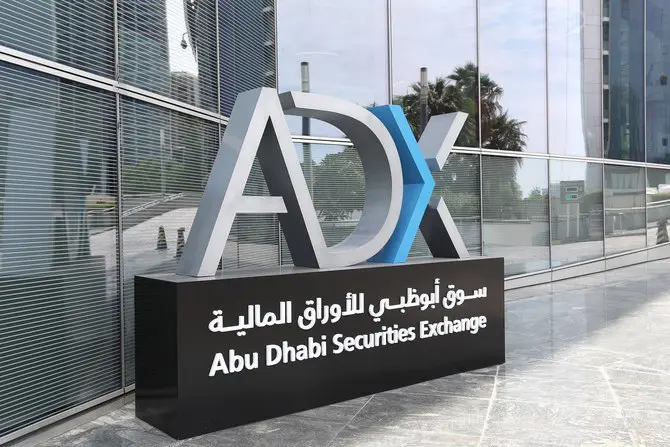ETF Market Growth is making headlines again — this time with a bold, high-stakes move by one of the world’s most influential sovereign wealth funds. Abu Dhabi’s Mubadala Investment Company has plunged $460 million into Bitcoin ETFs, marking a significant milestone in institutional crypto adoption.
Rather than purchasing Bitcoin directly and taking on the associated risks of custody, Mubadala opted for a more regulated and liquid approach. By leveraging Bitcoin exchange-traded funds, the fund is able to gain direct exposure to the world’s leading digital asset — without navigating the technical intricacies of cold storage, private key management, or volatility-induced stress.
This landmark investment not only underscores the rapid expansion of the ETF market but also signals a pivotal shift in how traditional financial powerhouses are adapting to the evolving crypto landscape.
Inside Abu Dhabi’s $460 Million Crypto Play
Bitcoin Exposure Through ETFs, Not Custody
Abu Dhabi’s decision to allocate nearly half a billion dollars into Bitcoin ETFs represents a strategic pivot. Mubadala, which oversees assets north of $280 billion, has joined a growing roster of heavyweight institutions favoring regulated Bitcoin investment products over direct asset purchases.
By going the ETF route, Mubadala bypasses the operational and security complexities that come with self-custody — a notable concern even for seasoned crypto users. This approach provides liquidity, regulatory clarity, and portfolio diversification, all while maintaining exposure to potential upside in the crypto market.
ETF Market Growth and Bitcoin’s Institutional Appeal
The ETF market growth has become one of the dominant narratives in 2025’s financial headlines. Once met with regulatory skepticism, Bitcoin ETFs have rapidly become one of the most popular financial instruments for crypto exposure.
Key Metrics Behind the Surge
- The global Bitcoin ETF market is projected to surpass $1 trillion by the end of 2025, according to Bloomberg Intelligence.
- Over 100 Bitcoin ETFs are now listed on major exchanges worldwide.
- Average daily trading volume across Bitcoin ETFs has reached $1.2 billion, reflecting high liquidity and investor interest.
Mubadala’s move into this space immediately places it among the top-tier holders of Bitcoin ETFs — a leaderboard that includes institutions like BlackRock, Fidelity, and ARK Invest.
Sovereign Wealth Funds Are Redefining Crypto Legitimacy
Middle Eastern sovereign wealth funds are increasingly becoming key players in the evolution of digital finance. Abu Dhabi’s bold investment could be the first domino in a regional shift toward broader crypto allocation strategies.
Regional Influence and Strategic Intent
According to Galaxy Research, at least five sovereign wealth funds — from the Gulf, Asia, and beyond — are expected to add Bitcoin or related instruments to their reserves by 2025. Their motivations range from strategic hedging and digital trade settlement to long-term capital appreciation.
Mubadala’s entry:
- Increases legitimacy of the Bitcoin ETF market
- Signals growing demand among risk-conscious institutional investors
- Encourages global asset managers to reassess crypto allocations
As sovereign wealth funds engage, they also contribute to ETF market growth, both in terms of capital inflow and reputational value. These funds are not speculative traders — they represent generational capital aiming for long-term value.
How This Move Impacts the Bitcoin ETF Leaderboard
Mubadala’s $460 million investment catapults it into the upper echelon of Bitcoin ETF stakeholders. With scale comes influence — and the Middle East now has a seat at the crypto investment table.
Competitive Pressure and Market Dynamics
Other institutional players — from U.S. pension funds like the Wisconsin Retirement System to hedge funds like Millennium Management — have also signaled growing confidence in Bitcoin ETFs.
Now, with Gulf sovereign capital in play, ETF providers may face increasing pressure to innovate:
- Lower fees
- Better custody integrations
- ESG-aligned crypto products
This creates a virtuous cycle: greater competition → better products → increased adoption → more ETF market growth.
The Bigger Picture — Global Investment Sentiment Shifting
Mubadala’s crypto allocation is not an isolated decision. It follows a trend of traditional finance institutions diversifying into digital assets through structured vehicles like ETFs.
Earlier this year, Barclays and Avenir Group increased their digital asset exposure through institutional-grade funds. The writing is on the wall — crypto is becoming a normalized component of global portfolios.
FAQ: ETF Market Growth
What is the size of Abu Dhabi’s investment in Bitcoin ETFs?
The Abu Dhabi sovereign wealth fund, Mubadala Investment Company, has invested $460 million into Bitcoin ETFs, making it one of the largest sovereign allocations to date.
How does ETF market growth benefit institutional investors?
ETF market growth offers institutions a regulated, liquid, and custody-free method to gain exposure to volatile assets like Bitcoin, mitigating operational risks while maintaining upside potential.
How does Mubadala’s investment influence the ETF leaderboard?
Mubadala’s large capital inflow pushes it into the top ranks of Bitcoin ETF holders, intensifying competitive dynamics among global institutional investors.
Why are sovereign wealth funds turning to crypto ETFs?
Sovereign wealth funds are using ETFs to diversify reserves, hedge against inflation, and align with strategic economic goals, without exposing themselves to the technical risks of direct crypto ownership.
Conclusion — A Catalyst for the Next Institutional Wave
The Abu Dhabi wealth fund’s plunge into Bitcoin ETFs marks a turning point for the ETF market growth narrative. As sovereign wealth funds begin to allocate serious capital into digital asset vehicles, institutional confidence in crypto is rapidly solidifying.
ETF providers, regulators, and investors alike are now operating in a fundamentally different environment — one where Bitcoin is not just a speculative asset, but a portfolio cornerstone for some of the world’s most conservative capital allocators.
With sovereign funds setting the tone, the next phase of crypto adoption won’t be led by retail FOMO, but by quiet, calculated institutional conviction.

